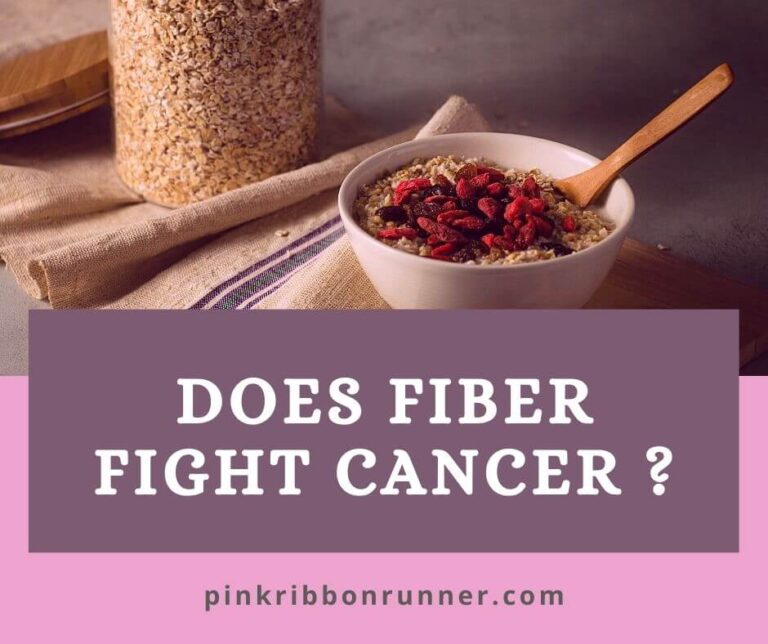Simple Tips for a Cancer-Safe Summer Barbeque
Summer is the perfect time to enjoy a family barbecue, but make sure to follow some cancer-safe tips to ensure everyone enjoys the meal without worrying about their health. Healthy eating is important to reduce the risk of cancer and cancer recurrence. And BBQ can be a risky way to cook without using safe grilling techniques.
This post contains affiliate links. As an Amazon Associate, I earn from qualifying purchases.
You have probably heard that eating a lot of processed and red meats has been linked to some cancers, including colon and breast cancer. And while you don’t need to forgo your favorite BBQ steak or pork chop completely, you should limit the amount of these foods you consume.

What Are The Cancer-Related Dangers Of Grilling?
BBQing meats, especially red and processed meats, is particularly unhealthy. When we grill meats on high temperatures and with open flame, carcinogenic compounds form in the meat.
In particular, PAH (polycyclic aromatic hydrocarbon compounds) form when fat from the meat drips down and flares up. The resulting smoke leaves a residue of PAH compounds on the food. Studies show that these compounds are linked to cancer, as well as other diseases.
“The most important factor contributing to the production of PAHs in grilling was smoke resulting from incomplete combustion of fat dripped onto the fire.” – Food Chem 2016 May 15;199:632-8
Another class of compounds, known as HCAs (heterocyclic amines) form when the protein in the meats react on high, intense heat that BBQs produce.

Does Grilling Food Cause Cancer?
In the laboratory, both PAH and HCAs cause damage to the DNA of cells, which can lead to the development of cancer over time.
It isn’t clear if this happens in people, as the laboratory rodents developing cancer are fed high amounts of PAHs and HCAs in these studies, sometimes thousands of times higher than we would normally eat. However, until we know more, it is a good idea to be cautious about ingesting these compounds.
There are cohort studies, looking at what people eat and if they develop cancer, suggest that grilling red meats is linked to some cancers, including breast cancer.
However, the HCAs and PAHs in grilled food need to be digested and broken down in our bodies before they become carcinogenic. Some people have the enzymes that do this, while other people have very little of the enzymes needed to digest these compounds.
As you can see, whether grilling often leads to cancer or not isn’t that straightforward. It depends on what you are cooking, what heat source you are using, how you prepare your food, and your individual susceptibility.

The Basics of Cooking on a Grill
High heat, both direct and indirect is the basis of cooking on a grill. This high heat will cook your food quickly. Some grills can reach temperatures in excess of 500 degrees in a few minutes. Flame flair ups are common when fats melt and drip onto hot embers or heat plates.
Direct heat from a grill is generated by the flames or embers. Indirect heat is created once the lid is down and the surrounding air is heated, very similar to your kitchen oven. However, grills differ from ovens because they reach higher temperatures and don’t allow fine control of the heat.
Direct heat and flares are when most carcinogens are formed on the meat from the smoke and char created. Indirect heat is less likely to form these cancer-causing compounds, although cooking with the lid down may concentrate the smoke.
Grilling is made safer when flare ups and smoke are reduced. The type of grill and type of fuel used to heat the cooking surface vary in the amount of carcinogens generated. Let’s look at 4 basic types of grills.
Read more about healthy eating:
Nightshade Vegetables: Friend or Foe in Fight against Cancer?
Top 10 Super Foods that Fight Cancer
Are We Cooking Ourselves Sick?
Which Type of Grill is better for Cancer-Safe Cooking
There are 4 basic types of grills. Each one has its pros and cons. For cancer-safe grilling, gas & electric grills are the better options, as they produce less smoke, and the level of heat is controlled better.
Charcoal Grills
Charcoal Grills are the most common. They cook with bricks of charcoal as fuel, which must be lighted and tended to create a bed of heated coals to cook your food. They instill a smoky flavor to the food, which many master grillers love.
Pro: Charcoal produces a smoky flavor that many people love about barbeque food.
Con: Getting the charcoal heat just right can be very difficult. Flare ups and charring of foods cooked on this type of grill produce more cancer-causing chemicals.

Pellet Grills
Pellet grills are fueled by flavored wood pellets. These pellets are usually hickory, maple, apple, or mesquite. Most pellet grills are technologically advanced and require an electric connection.
Pro: The flavor that these grills produce is second to none. Most BBQ connoisseurs love foods cooked on a pellet grill.
Con: The woods produce a higher heat and more smoke than any other type of grill. This is not good news for the cancer-conscious cook.
Gas Barbeques
Gas grills use either propane or natural gas that is lighted to produce a flame. The heat of a gas bbq is better controlled and these grills are easy to use.
Pro: The temperature of a gas grill is more easily controlled. It is possible to slow cook at lower temperatures on a gas grill, producing less carcinogenic compounds in the food.
Con: unless woodchips are added, the BBQ smoke flavors are lacking.

Electric Grills
The electric grill is, of course, powered by an electrical connection. Some of these grills can be used indoors because they don’t usually produce smoke. The famous George Foreman Grill is an example of an electric grill.
Pro: this type of grill produces the least amount of PAHs because no smoke forms.
Con: there are no traditional smoky flavors of food cooked on an electric grill, which also require an electrical connection.

Smokeless Electric Grill
by George Foreman on Amazon
10 Simple Tips for Cancer-Safe Grilling
While we know that grilling meats at high temperatures increases the risk for some cancers, science has been trying to determine ways that we can reduce that risk.
Let’s look at some strategies to enjoy a worry-free summertime BBQ:
- Plan to grill more vegetables and fruits, as plant-based foods don’t form HCAs when grilled
- If you do enjoy BBQ meats, keep it to about 1/3 of your plate. Fill up the other 2/3 of your plate with colorful vegetables and fruits that contain antioxidant compounds that counteract other harmful chemicals.
- Marinate your meats before grilling. Studies have found that marinating significantly reduces the amount of HCAs that form in the meat.
- Partially pre-cook your meats in the oven or microwave before finishing on the grill. This will reduce the amount of time that the meat is in contact with the flame or intense heat, reducing the amount of PAHs.
- Trim the fat on your meat to avoid flame flare ups that produce significantly more PAHs.
- Cook the meat in the center of the grill and flip frequently to keep the fat draining and flare ups to a minimum.
- Cut your meat so that it cooks faster. Kabobs are a great way to cook meat on a BBQ.
- Use vegetable substitutes for meat if possible. For example, portobello mushrooms make a great burger.
- Cook meats at a lower temperature on a gas BBQ, where you have more control over the heat levels.
- Remove any charred bits of meat before eating. These are the areas that contain the most harmful chemicals.

3 Favorite Marinade Recipes for Cancer-Safe Grilling
Marinades can reduce the amount of harmful chemicals from forming in grilled meats. These basic marinade recipes combine the perfect ingredients and spices for a great lower-risk BBQ. I hope you enjoy these delicious flavor combinations.
Simply mix the ingredients together and let your meat soak up the flavors. On average, allow meat to marinade from 1 – 3 hours for smaller cuts or 6 – 12 hours for larger pieces, such as a roast or whole chicken. The longer the food sits in the marinade, the more intense the flavors.
Tandoori
- ½ cup plain yogurt
- 1 tsp fresh ginger, grated
- 2 tsp smoked paprika
- 1 tsp ground cumin
- 1 tbsp olive oil
Citrus and Herb
- 1 fresh lemon or lime, juiced
- 2 cloves garlic, minced
- 3 sprigs fresh rosemary, chopped
- 5 tbsp olive oil
Sweet and Spicy
- 2 cloves garlic, minced
- 1 red chili pepper, chopped
- 1 1/2 tbsp fresh parsley, chopped
- 3 tbsp honey
- ¼ cup olive oil
I hope you enjoy your summer. Don’t forget to stay hydrated and wear sunscreen too!
Photo credit: depositphotos.com










Helpful post. I’m a breast cancer survivor and I never knew any of this. We’ve eaten BBQ meats pretty much every summer, although I don’t particularly care for the BBQ flavor. I’d actually prefer pan fried meats, so this gives me a good reason to discourage my husband from his favorite BBQ hobby.
You don’t have to forgo your BBQ completely. Just eat less grilled meats. Do more veggie and fruit grilling. And perhaps not as often. 🙂
This was quite informative. I had no idea that grilling meats could possibly lead to cancer. Thanks for sharing!
I am glad you found it helpful.
Oh, yummy marinade recipes! We grill several times a week all year long (even in the pacific northwest!). Thanks for the good tips.
What an insightful article..
Thanks for sharing.
Excellent post! I love that you go over the different grilling methods. Thanks!
Very interesting article! Thank you for sharing!
This is fascinating – in a terrifying way! I had absolutely no idea. I really appreciate the tips you give to decrease the potentially harmful risks of grilling.
It is something a lot of people don’t think about and is very important at this time of year. I am glad you found it helpful.